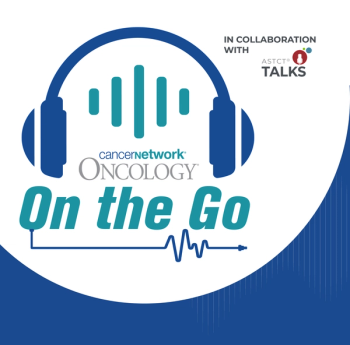
Two cases of patients with multiple myeloma and kidney failure successfully underwent CAR T-cell therapy using ciltacabtagene autoleucel.

Your AI-Trained Oncology Knowledge Connection!


Two cases of patients with multiple myeloma and kidney failure successfully underwent CAR T-cell therapy using ciltacabtagene autoleucel.

Posttransplant cyclophosphamide leads to unique changes in vascular biomarkers, revealing a distinct toxicity profile compared to other GVHD prophylaxis regimens.

A panel of expert pharmacists provides their perspectives on gene therapy agents such as exagamglogene autotemcel in the management of sickle cell disease.

These findings demonstrate the potential risks associated with CNI-based immunosuppression in stem cell transplantation without concurrent strategies to eliminate alloreactive T cells.

In a multicenter study, researchers have a phase 1, open-label study of CB-012, a next-generation CRISPR-edited allogeneic anti-CLL-1 CAR-T cell therapy, aimed at treating adults with relapsed/refractory AML.

Experts in multiple myeloma weigh the benefits and risks of administering CAR T-cell therapy to patients based on prior reports of secondary malignancies.

A recent study investigated the incidence and clinical outcomes of acute graft-versus-host disease following post-transplantation cyclophosphamide-based prophylaxis in hematopoietic cell transplantation.

The Best of CAR T at the 2024 Tandem Meetings Webinar Series, which aired on June 27, 2024, aimed to provide a comprehensive overview of the latest advancements and research in CAR T cell therapy.

A recent study, published in Blood Advances, has identified that pre-HSCT conditioning induces the extracellular release of damaged mitochondria, exacerbating GVHD.

A recent study, published in Cell, has identified the circadian rhythm of TILs as a key determinant in the efficacy of immunotherapy treatments such as CAR T-cell therapy and immune checkpoint blockade.

Researchers at the Mayo Clinic have found that mesenchymal stromal cells engineered with chimeric antigen receptors can enhance immunosuppression in the context of immune-related disorders.

In a collaborative effort between 18 centers, researchers have developed a system that effectively stratifies children at the onset of acute graft versus host disease for risk of non-relapse mortality over 6 months.

Efficacy of post-transplant cyclophosphamide vs antithymocyte globulin remains a large discussion for patients with graft-vs-host disease.

ASTCT discusses Richter transformation and treatment options available for this population.

Researchers from MSKCC have explored the potential of personalized fludarabine dosing, based on population pharmacokinetics, to enhance the outcomes of CD19 CAR T-cell therapy in patients with relapsed/refractory aggressive B-cell non-Hodgkin lymphomas.

Researchers at the University of Birmingham in the UK have explored the dynamics of inflammatory biomarkers following allogeneic hematopoietic stem cell transplantation.

Dr. Mustafa Hyder spoke about the results from a phase 1/2 trial presented during the 2024 Tandem Meeting.

Amar H. Kelkar, MD, presented findings on the cost-effectiveness of transplantation therapy during the 2024 Tandem Meeting.

Rahul Banerjee, MD, FACP, highlights recent presented from the 2024 Tandem Meeting.

A phase 1 clinical trial has found the optimal dosing schedule with a tolerable safety profile of vibecotamab in patients with relapsed/refractory acute myeloid leukemia.

Overall, the findings highlight the potential of bispecific antibodies as salvage therapy post anti-CD19 CAR T cell treatment and challenges associated with allogeneic hematopoietic cell transplantation consolidation after bispecific antibodies therapy in patients with relapsed/refractory B-cell lymphomas .

A recent study published in Nucleus discussed the utility of T-cell replete cord blood transplant in patients with high-risk pediatric acute myeloid leukemia and myelodysplastic syndrome.

A recent study published in Nucleus highlighted the impact of graft-vs-host disease prophylaxis on cytomegalovirus reactivation.

Notch signaling acute gastrointestinal graft-vs-host disease was determined in a study analyzing mice and nonhuman primates.

ISB 1342 has shown improved safety and efficacy for patients with relapsed/refractory multiple myeloma.

Results from the phase 3 COG ALL1331 trial found the use of blinatumomab for pediatric patients with B-cell acute lymphoblastic leukemia improved efficacy.

The difference in utilizing cytomegalovirus reactivation outcomes while on posttransplantation cyclophosphamide vs other graft-vs-hose disease agents has led to a better understanding in long-term disease and reinfection rates.

A recent study has found that novel graft-versus-leukemia has minor histocompatibility antigens and was all validated.

Pediatric patients with acute lymphoblastic leukemia and have KMT2A rearrangements were evaluated in a recent study published in the British Journal of Haematology.

A study regarding next-generation sequencing evaluated minimal residual disease in patients with acute myeloid leukemia.